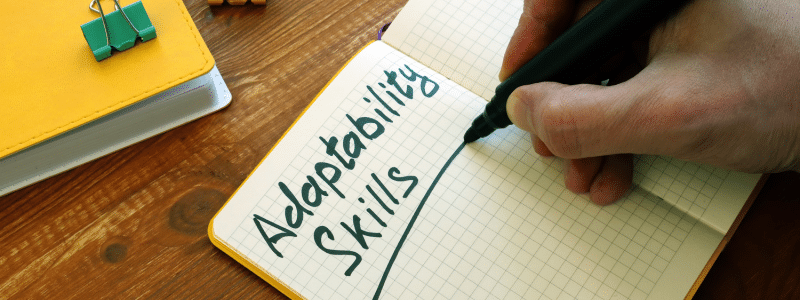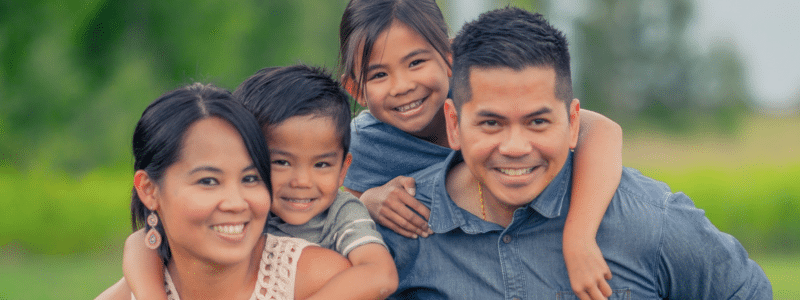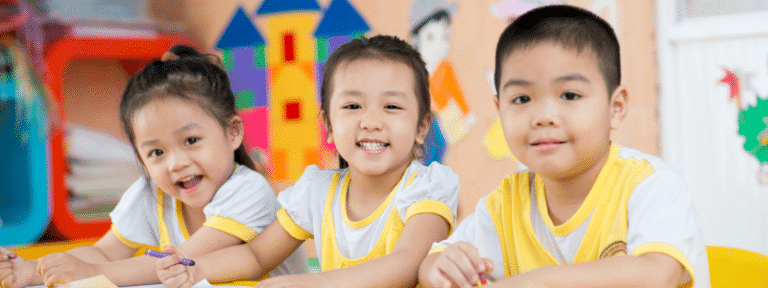
Adapting to the world around you is no easy task. In this blog on adaptive skills training for autistic children, we’ll look at the following:
- Understanding adaptive skills training in autism
- Key areas of focus in adaptive skills training
- Collaborative approaches: Involving parents and caregivers in the training process
- Overcoming common challenges in adaptive skills training
- Resources and support for families
Understanding Adaptive Skills Training in Autism
Adaptive skills training (AST) helps children on the autism spectrum gain skills in specific areas of life that must be adapted to but may not come naturally. These practical everyday life skills include math and reading, communication, social interactions, and safety. AST can also assist with transitional IEPs to better learning and advance education.
Everyone learns adaptive behavior and skills at slightly different ages, but some individuals with autism may be far behind on these, not adapting naturally like their peers. AST is dedicated to increasing independence and quality of life in autistic children, guiding them in acquiring daily living skills.
Key Areas of Focus in Adaptive Skills Training

AST targets the most critical skills to adapt to in children and adults and then breaks these down further. While AST can help with skills needed to function in adulthood, like money management and independent living, we’ll focus below on the childhood-based skillsets we offer.
Self-Care Skills: Strategies and Tips
Learning to take care of yourself should begin early on in life. Our trained professionals will assess where your child is at in their essential self-care and personal hygiene abilities and create a plan to grow in the areas they struggle with—the self-care skills people are expected to be adapted to will differ from age to age.
Examples of Major Milestones of Self-Care Skills By Age
1-3 Years
- Settling to sleep at night
- Tolerating diaper changes
- Taking off shoes and socks
- Using the toilet with assistance
- Unbuttoning large buttons
- Wiping face with a napkin
4- 6 Years
- Brushing teeth
- Dressing and undressing
- Using toilet independently
- Feeding themself
- Dressing for the weather
- Opening lunch boxes, zip lock bags, etc.
7-8 Years
- Packing a bag for school
- Expressing emotions
- Showering independently
- Preparing meals
- Coping in noisy environments
- Understanding money
You can encourage your child at home to practice self-care skills through several methods, including modeling, prompting, and reinforcement.
Modeling
Modeling demonstrates desired behavior through a personal example. When you say or do something and prompt your child to follow suit, they can remember the routine more efficiently and attempt it independently. You might remove your own shoe next to them to show how it’s done (e.g., undoing laces, pulling from the heel)

Prompting
Through verbal cues and gestures, you can encourage your child to take each step involved in their self-care process. For example, you can gesture to the toothbrush, the toothpaste, the sink, and then their mouth to facilitate brushing their teeth.
Reinforcement
Everyone feels better about their progress when they’re congratulated for it. Reinforcement uses verbal praise or rewards to strengthen an individual’s desire and retention of specific skills. If your child successfully removes their jacket once indoors and without you asking them, they get to have a hot chocolate. This sticks with them and encourages them to keep up the practice in the future.
Enhancing Communication Abilities
AST helps autistic children with communication skills by meeting them where they are. Whether your child uses tantrums rather than words or has limited speech, our team can work with you to develop the best plan to meet speech and communication goals. One of the most common ways AST aids with communication skills is by using visual supports like graphics and social stories.
Visual Aids
Visual supports can help with communication skills by engaging the child more in learning and increasing understanding and memory. These tools include graphic organizers, checklists, picture books, and social stories. One study found that visual supports were effective for preschoolers to high school-age learners with ASD in several learning areas, including communication and socialization.
Social stories function as comic-book-style scenarios that allow your child to walk through a scenario and choose how to respond to different situations. Visual support also reinforces certain routines and expectations for targeted skills and behaviors.
Social Skills Training
Social Skills Training (SST) is a structured approach to help with an individual’s social skills. SST strongly emphasizes various activities that foster social skills, such as writing letters, real or pretend phone calls, and engaging in meaningful interactions with friends. By strategically incorporating these activities into SST, children with autism can gain more confidence and practical experience toward social growth.
Collaborative Approaches: Involving Parents and Caregivers in the Training Process

We always include the family or caretakers fully in the process of AST. It’s important that you know your child’s progress throughout the program and that we can answer any questions or concerns you have.
You’re your child’s number-one support, and their progress wouldn’t be possible without you. Likewise, you must understand at-home techniques to continue working with your child on their adaptive skills outside our building.
Creating a Supportive Home Environment
Sometimes, our home environment triggers problematic behavior or deters our child’s adaptive skill advancement, and we don’t even realize it. Certain sensory items contribute to overstimulation and difficulty concentrating.
Likewise, anxiety-inducing factors like loud noises can play a role in poor skill retention. Consider the tips below to foster a home environment optimal for your child’s specific needs.
- Create a consistent routine (waking up, mealtimes, chores, bedtime, etc)
- Have a quiet, designated area for learning (not including natural learning, which takes place where it occurs, e.g., the kitchen for washing dishes)
- Use graphics, social stories, videos, and other visual aids for learning.
- Eliminate sensory overload triggers. These will vary depending on what your child becomes overwhelmed with but may look like,
- Using curtains to block out bright light
- Replacing light bulbs with dimmer options
- Eliminating loud music or TV
- Cleaning and decluttering spaces
- Providing a “desensitization” room or space where they can calm down when overwhelmed
- Offering headphones or earbuds
- Practice mindfulness exercises with your child (e.g., find five items of the same color in the room, close your eyes, and describe what you hear, etc.)
It’s common for autistic children to strive for routine and consistency. Keeping to a schedule and having a comfortable and consistent environment significantly contribute to skill development success.
Working with Professionals: A Team Approach
Your child’s therapists exist to recognize where they need to grow and to put a plan of action together to support them in meeting that goal. Like your child’s therapist and educators, you, too, must look for purposeful opportunities for your child to practice their life skills.
How Parents Can Effectively Collaborate With Professionals
We want you to be thoroughly involved in your child’s adaptive skills journey. Some of the questions you could ask include,
- How can I practice these techniques at home?
- What are my child’s strengths? Where do they need improvement?
- How is my child progressing in _______ area? (social, communication, self-care)
- How long have you been working with children with autism?
- How do you approach challenges in teaching autistic children?
- Are there any reoccurring challenges my child is facing?
- What does a typical session look like?
Never hesitate to ask questions you have for your child’s therapists, teachers, and doctors.
Overcoming Common Challenges in Adaptive Skills Training

Learning new skills will always come with obstacles, regardless of who you are and where you’re at in your level of adaptive skills. Some common barriers encountered in adaptive skills training include:
- Financial Constraints
- Overcoming this: REA accepts most major insurance. Our team will work alongside you to determine how to get you the best financial support to participate in our services.
- Overcoming this: REA accepts most major insurance. Our team will work alongside you to determine how to get you the best financial support to participate in our services.
- Lack of Support System
- Overcoming this: If you or a loved one is without outside support from friends or family, we are committed to filling that gap. Our compassionate and resilient team is dedicated to supporting you on your journey, and we are eager to witness your success.
- Overcoming this: If you or a loved one is without outside support from friends or family, we are committed to filling that gap. Our compassionate and resilient team is dedicated to supporting you on your journey, and we are eager to witness your success.
- Lack of Transporation
- Overcoming this: Most cities offer public transport options for those with disabilities who either don’t own a car, can’t drive independently, or have someone to take them to our office.
Resources and Support for Families

You don’t have to do this journey on your own. There are plenty of resources available to you and your loved ones to help you with taking care of your autistic child. Along with our blogs related to skill training and autism, we also provided a list of support groups for families with autistic loved ones.
Related Blogs
- Play Therapy for Children with Autism
- How Do I Make My Home Autism Friendly?
- How Can I Care for Someone with Autism at Home?
- How Music Therapy Can Benefit Children with Autism
- Conflict Resolution Skills for People with Autism
- Home Safety for People with Disabilities
Support Groups for Families of Autistic Children
Arizona
- Autism Society of Greater Phoenix
- AZ Autism Moms
- Phoenix West Valley Autism Families
- Phoenix High Functioning Autism & Asperger’s Family Support Network
- Yuma Autism Support Group
Texas
- Austin Special Needs Parents
- Houston Autism Resources & Support – HARS Meetup Group
- Parent/Caregiver Support Group (Spanish)
- The Block of Greater Houston
- Special Needs Parents of North Texas
- Autism Mamas DFW
California
- Parents of Twice-Exceptional (2e) K-12 Kids
- Parents of Children with Developmental Disabilities
- Autism + Moms SoCal and Beyond
- LA FEAT
- Talk About Curing Autism (TACA)
- Parent Support Group for Families of Children with Autism
Nevada
- Autism Parents Support Group of Las Vegas
- Taca Las Vegas
- Positively Kids
- Autism & ADHD Parent Support Group
Tennessee
- Murfreesboro Special Moms
- Cheatham County Kids
- Rising Above Ministries
- Nashville Children in Nature
- Parents & Caregivers Of Autism /Special Needs
Florida
- Florida Autism Parents and Friends Support Group
- Across The Spectrum Parent Support Group
- Fort Lauderdale Autism & Related Disorders Meetup
- Pinellas Autism Project
Washington
- The Victoria Autism Meetup Group
- Seattle Integrative Autism/Anxiety/ADHD/Depression Meetup
- WAA’s Supporting Parents of Autism (SPA)
- Bellevue Father’s Network Support Group
- Mountlake Terrace Autism Parents Participating Learning Encouraging (APPLE) Group
Hawaii
Additional Resources
- A Parent’s Guide to Autism
- A Grandparent’s Guide to Autism
- A Sibling’s Guide to Autism
- A Friend’s Guide to Autism
Empowering Autistic Children for a Brighter Tomorrow
Roman Empire Agency offers adaptive skills training because we know it works. Our agency offers only the best evidence-backed services to give our consumers the information and tools they need to succeed. Learn more today about who we are and what we can do for you or your loved one.






